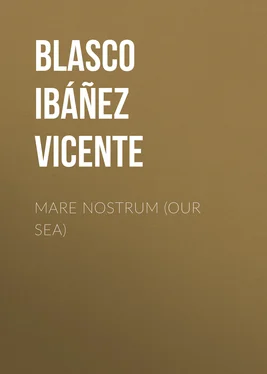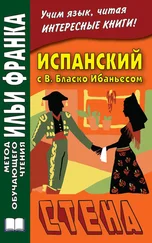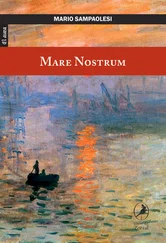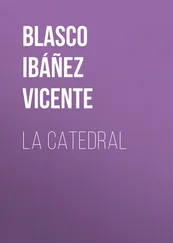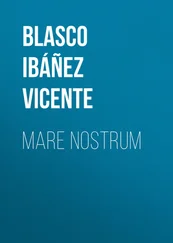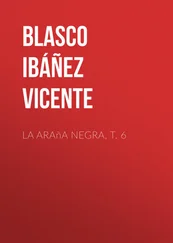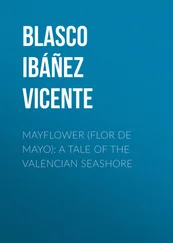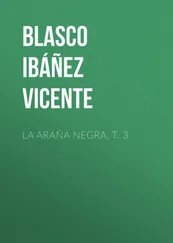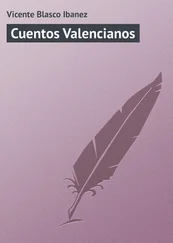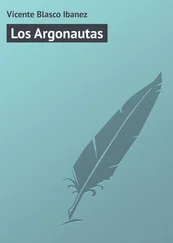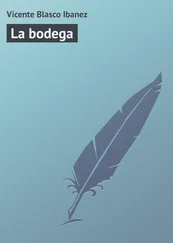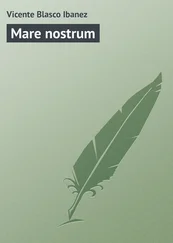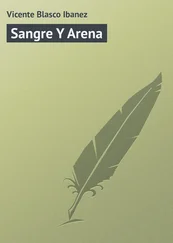Vicente Blasco Ibáñez - Mare Nostrum (Our Sea)
Здесь есть возможность читать онлайн «Vicente Blasco Ibáñez - Mare Nostrum (Our Sea)» — ознакомительный отрывок электронной книги совершенно бесплатно, а после прочтения отрывка купить полную версию. В некоторых случаях можно слушать аудио, скачать через торрент в формате fb2 и присутствует краткое содержание. Жанр: foreign_prose, foreign_antique, на английском языке. Описание произведения, (предисловие) а так же отзывы посетителей доступны на портале библиотеки ЛибКат.
- Название:Mare Nostrum (Our Sea)
- Автор:
- Жанр:
- Год:неизвестен
- ISBN:нет данных
- Рейтинг книги:5 / 5. Голосов: 1
-
Избранное:Добавить в избранное
- Отзывы:
-
Ваша оценка:
- 100
- 1
- 2
- 3
- 4
- 5
Mare Nostrum (Our Sea): краткое содержание, описание и аннотация
Предлагаем к чтению аннотацию, описание, краткое содержание или предисловие (зависит от того, что написал сам автор книги «Mare Nostrum (Our Sea)»). Если вы не нашли необходимую информацию о книге — напишите в комментариях, мы постараемся отыскать её.
Mare Nostrum (Our Sea) — читать онлайн ознакомительный отрывок
Ниже представлен текст книги, разбитый по страницам. Система сохранения места последней прочитанной страницы, позволяет с удобством читать онлайн бесплатно книгу «Mare Nostrum (Our Sea)», без необходимости каждый раз заново искать на чём Вы остановились. Поставьте закладку, и сможете в любой момент перейти на страницу, на которой закончили чтение.
Интервал:
Закладка:
This prodigy of the little fishes was almost always followed with what he called the miracle of the Peixot , endeavoring with the weight of such a marvelous fish tale to crush the doubts of the impious.
The galley of Alphonso V of Aragon (the only sailor king of Spain), upon coming out of the Gulf of Naples, once struck a hidden rock near the island of Capri which took away a side of the ship without making it leak; and the vessel continued on with all sails spread, carrying the king, the ladies of his court, and the retinue of mail-clad barons. Twenty days afterward they arrived at Valencia safe and sound like all sailors who in moments of danger ask aid of the Virgen del Puig . Upon inspecting the hull of the galley, the master calkers beheld a monstrous fish detach itself from its bottom with the tranquility of an upright person who has fulfilled his duty. It was a dolphin sent by the most holy Señora in order that his side might stop up the open breach. And thus, like a plug, it had sailed from Naples to Valencia without allowing a drop of water to pass in.
The chef would not admit any criticisms nor protests. This miracle was undeniable. He had seen it with his own eyes, and they were good. He had seen it in an ancient picture in the monastery of Puig, everything appearing on the tablet with the realism of truth,—the galley, the king, the peixòt and the Virgin above giving the order.
At this juncture the breeze would flap the narrator's shirt tail, disclosing his abdomen divided into hemispheres by the tyranny of its only pantaloon button.
"Uncle Caragol, look out!" warned a teasing voice.
The holy man would smile with the seraphic calm of one who sees beyond the pomps and vanities of existence, and would begin the relation of a new miracle.
Ferragut used to attribute his cook's periods of exaltation to the lightness of his clothing in all weathers. Within him was burning a fire incessantly renewed. On foggy days he would climb to the bridge with some glasses of a smoking drink that he used to call calentets . Nothing better for men that had to pass long hours in the inclement weather in motionless vigilance! It was coffee mixed with rum, but in unequal proportions, having more alcohol than black liquid. Toni would drink rapidly all the glasses offered. The captain would refuse them, asking for clear coffee.
His sobriety was that of the ancient sailor,—the sobriety of Father Ulysses who used to mix wine with water in all his libations. The divinities of the old sea did not love alcoholic drinks. The white Amphitrite and the Nereids only accepted on their altars the fruits of the earth, sacrifices of doves, libations of milk. Perhaps because of this the seafaring men of the Mediterranean, following an hereditary tendency, looked upon intoxication as the vilest of degradations. Even those who were not temperate avoided getting frankly drunk like the sailors of other seas, dissimulating the strength of their alcoholic beverage with coffee and sugar.
Caragol was the understudy charged with drinking all which the captain refused, together with certain others which he dedicated to himself in the mystery of the galley. On warm days he manufactured refresquets , and these refreshments were enormous glasses, half of water and half of rum upon a great bed of sugar,—a mixture that made one pass like a lightning flash, without any gradations, from vulgar serenity to most angelic intoxication.
The captain would scold him upon seeing his inflamed and reddened eyes. He was going to make himself blind…. But the guilty one was not moved by this threat. He had to celebrate the prosperity of the vessel in his own way. And of this prosperity the most interesting thing for him was his ability to use oil and brandy lavishly without any fear of recriminations when the accounts were settled. Cristo del Grao !… would that the war would last forever!…
The Mare Nostrum's third voyage from South America to Europe came suddenly to an end in Naples, where they were unloading wheat and hides. A collision at the entrance of the port, with an English hospital ship that was going to the Dardanelles, injured her stern, carrying away a part of the screw.
Toni roared with impatience upon learning that they would have to remain nearly a month in enforced idleness. Italy had not yet intervened in the war, but her defensive precautions were monopolizing all naval industries. It was not possible to make the repairs sooner, although Ferragut well knew what this loss of time would represent in his business. Valuable freight was waiting for him in Marseilles and Barcelona, but, wishing to tranquillize himself and to pacify his mate, he would say repeatedly:
"England will indemnify us…. The English are just."
And in order to soothe his impatience he went ashore.
Compared with other celebrated Italian cities, Naples did not appear to him of much importance. Its true beauty was its immense gulf between hills of orange trees and pines, with a second frame of mountains one of which outlined upon the azure heavens its eternal crest of volcanic vapors.
The town did not abound in famous edifices. The monarchs of Naples had generally been foreigners who had resided far away and had governed through their delegates. The best streets, the palaces, the monumental fountain, had come from the Spanish viceroys. A sovereign of mixed origin, Charles the III, Castilian by birth and Neapolitan at heart, had done the most for the city. His building enthusiasm had embellished the ancient districts with works similar to those that he erected years afterward, upon occupying the throne of Spain.
After admiring the Grecian statuary in the museum, and the excavated objects that revealed the intimate life of the ancients, Ulysses threaded the tortuous and often gloomy arteries of the popular districts.
There were streets clinging to the slopes forming landings flanked with narrow and very high houses. Every vacant space had its balconies, and from every railing to its opposite were extended lines spread with clothes of different colors, hung out to dry. Neapolitan fertility made these little alleys seethe with people. Around the open-air kitchens there crowded patrons, eating, while standing, their boiled macaroni or bits of meat.
The hucksters were hawking their goods with melodious, song-like cries, and cords to which little baskets were fastened were lowered down to them from balconies. The bargaining and purchases reached from the depth of the street gutters to the top of the seventh floor, but the flocks of goats climbed the winding steps with their customary agility in order to be milked at the various stair landings.
The wharves of the Marinela attracted the captain because of the local color of this Mediterranean port. Italian unity had torn down and reconstructed much of it, but there still remained standing various rows of little low-roofed houses with white or pink facades, green doors, and lower floors further forward than the upper ones, serving as props for galleries with wooden balustrades. Everything there that was not of brick was of clumsy carpentry resembling the work of ship calkers. Iron did not exist in these terrestrial constructions suggestive of the sailboat whose rooms were as dark as staterooms. Through the windows could be seen great conch-shells upon the chests of drawers, harsh and childish oil paintings representing frigates, and multi-colored shells from distant seas.
These dwellings repeated themselves in all the ports of the Mediterranean just as though they were the work of the same hand. As a child, Ferragut had seen them in the Grao of Valencia and continually ran across them in Barcelona, in the suburbs of Marseilles, in old Nice, in the ports of the western islands, and in the sections of the African coast occupied by Maltese and Sicilians.
Читать дальшеИнтервал:
Закладка:
Похожие книги на «Mare Nostrum (Our Sea)»
Представляем Вашему вниманию похожие книги на «Mare Nostrum (Our Sea)» списком для выбора. Мы отобрали схожую по названию и смыслу литературу в надежде предоставить читателям больше вариантов отыскать новые, интересные, ещё непрочитанные произведения.
Обсуждение, отзывы о книге «Mare Nostrum (Our Sea)» и просто собственные мнения читателей. Оставьте ваши комментарии, напишите, что Вы думаете о произведении, его смысле или главных героях. Укажите что конкретно понравилось, а что нет, и почему Вы так считаете.
